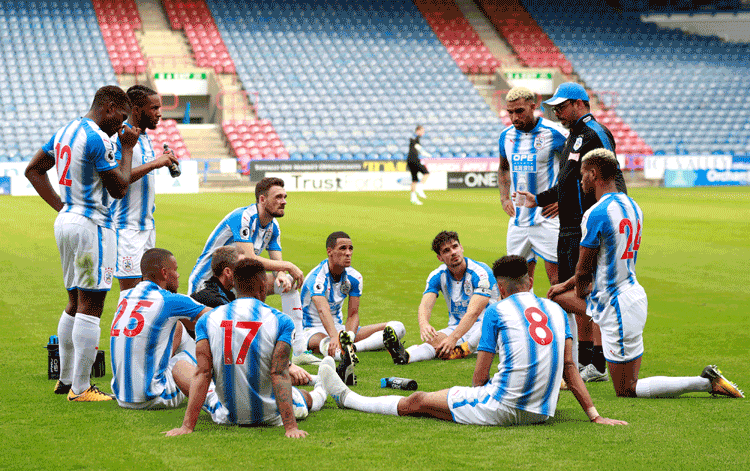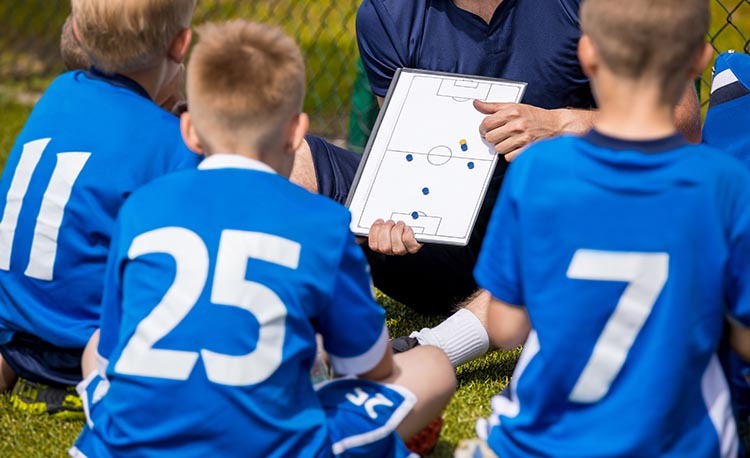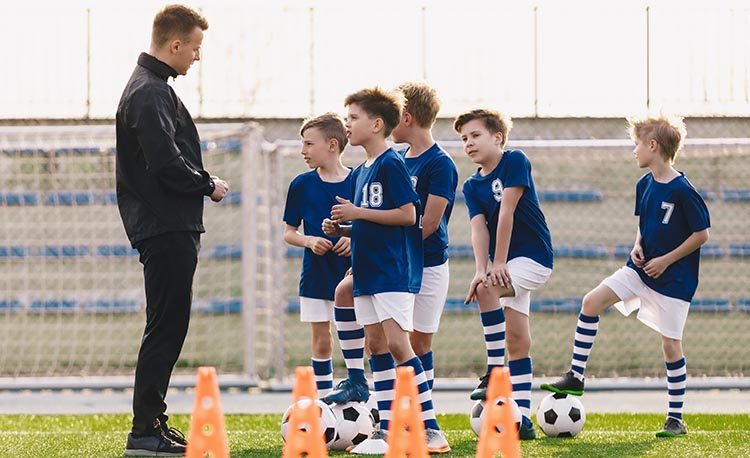5 tips to motivate your players
Young soccer players all want to play as well as they can, win matches and generally enjoy the ’beautiful game’. But that natural enthusiasm can be quickly knocked out of them if their coaches and parents don’t understand and apply the basic principles of player motivation.
To begin with, we need to remind ourselves why children want to play soccer:
- To learn and improve their skills
- To have fun To be with friends
- To experience the excitement of competition
- To enhance their physical fitness
- To demonstrate their competence
These motivating factors are all intrinsic (they come from within the child) as opposed to extrinsic (coming from other people). Intrinsic motivation is a stronger motivator than extrinsic motivation, (as you know, a child that wants to play soccer will do better than a child who is told to play soccer) but intrinsic motivation can disappear if external motivation is absent.
When that happens that child will stop playing soccer and the resulting loss of self esteem ("I thought I could be a good soccer player but now I know I can’t") may well affect the child in other, more important, areas of their lives.
So, what can you do to motivate your players?
1. Plan interesting, varied and fun training sessions
A disorganised training session can easily demotivate players as can a session that’s pitched at the wrong level. And remember that variety is the spice of life. Don’t use the same old boring drills every week. Use Premium games instead
2. Set objectives
Having realistic and achievable targets is a powerful motivator, so set a simple target for your players at every training session and. Keep the objectives simple and reward achievement and/or effort. More about this later.
3. Define success
What’s the first question a six or seven year old player asks as he or she comes off the field? If it’s not "What’s for dinner?" it will be "did we win?" There are many studies that have shown that children under the age of ten do not ’understand’ winning and losing in the same way that you or I do. Because of this, they will not feel sad that they lost a match until a parent or coach tells them that they lost and accompanies this information with a positive or negative emotional reaction. So if you have mention the result, do it with a smile Whatever the result, it is better to talk about the positives and keep the negatives to yourself. In that way, you are rewarding the effort your players put in and are motivating them to keep trying to improve.
4. Positive reinforcement
Positive reinforcement is catching a child doing something you want them to do and rewarding it. Children (and adults) like being rewarded and will focus on repeating the behaviour that immediately preceded the reward. If, for example, you high-five a child for providing an assist in a match or training session they will try to repeat the action because of the approval it attracts. Other players will also try to replicate the behaviour (the assist) because they want to rewarded in a similar way.
5. And smile!
Nothing is more demotivating to a young player than arriving at a coaching session full of get up and go only to be greeted by a coach who looks as though the sky is about to fall in.
Newsletter Sign Up
Coaches Testimonials

Gerald Kearney, Downtown Las Vegas Soccer Club

Paul Butler, Florida, USA

Rick Shields, Springboro, USA

Tony Green, Pierrefonds Titans, Quebec, Canada
Subscribe Today
Discover the simple way to become a more effective, more successful soccer coach
In a recent survey 89% of subscribers said Soccer Coach Weekly makes them more confident, 91% said Soccer Coach Weekly makes them a more effective coach and 93% said Soccer Coach Weekly makes them more inspired.
*includes 3 coaching manuals
Get Weekly Inspiration
All the latest techniques and approaches
Soccer Coach Weekly offers proven and easy to use soccer drills, coaching sessions, practice plans, small-sided games, warm-ups, training tips and advice.
We've been at the cutting edge of soccer coaching since we launched in 2007, creating resources for the grassroots youth coach, following best practice from around the world and insights from the professional game.






